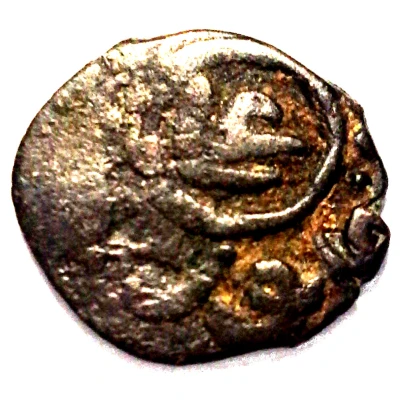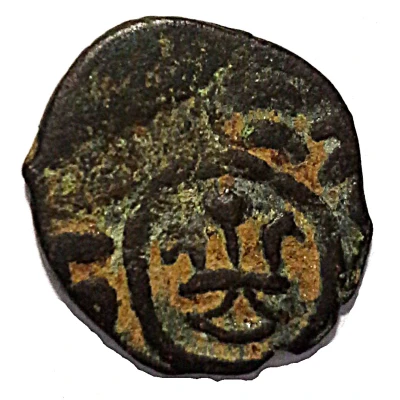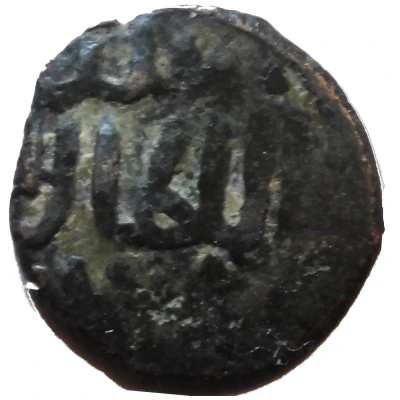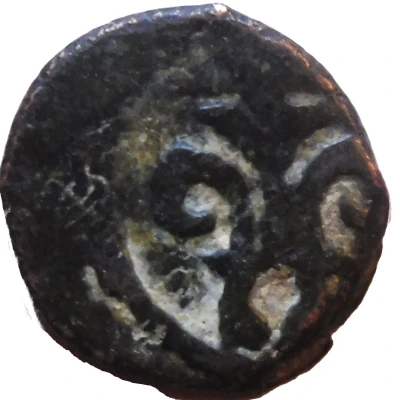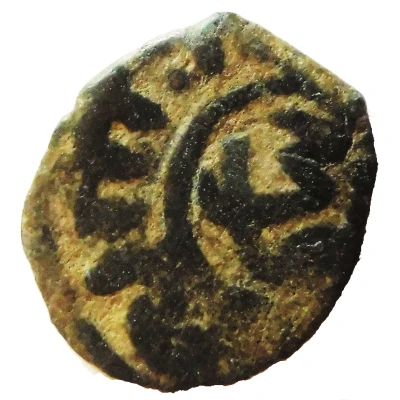
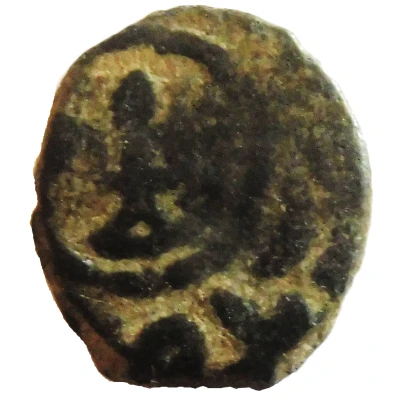

© Cycnos (CC BY-NC)
Fals - Salah-ad-Din Hajji II Dimashq
783 (1382) year| Copper | 2.95 g | 18 mm |
| Issuer | Mamluk Sultanate |
|---|---|
| Sultan | Hajji II (1381-1382, 1389-1390) |
| Type | Standard circulation coin |
| Year | 783 (1382) |
| Calendar | Islamic (Hijri) |
| Value | 1 Fals (1⁄60) |
| Currency | Dinar (1250-1517) |
| Composition | Copper |
| Weight | 2.95 g |
| Diameter | 18 mm |
| Shape | Round (irregular) |
| Technique | Hammered |
| Demonetized | Yes |
| Updated | 2024-10-05 |
| Numista | N#142775 |
|---|---|
| Rarity index | 93% |
Reverse
A fleur-de-lys surrounded by four points and a circle; around a legend indicating the name of the workshop and the date in full.
Lettering: ضرب بدمشق سنة ثلث وثمانين وسبعماية
Translation:
Duriba bi dimashq sanat thelath wa themanin wa seb 'mi'at:
"Struck in Damascus, in the year seven hundred and eighty-three".
Comment
First reign (1382) last ruler of the Bahri dynastySecond reign (1389-1390) ruler of the Burji dynasty
Interesting fact
One interesting fact about this coin is that it was issued during the reign of Sultan Salah-ad-Din Hajji II, who was the last Sultan of the Mamluk Sultanate, which was a powerful state that ruled over much of the Middle East and North Africa during the 13th and 14th centuries. Despite being the last Sultan, Salah-ad-Din Hajji II was known for his military campaigns and administrative reforms, which helped to stabilize the Sultanate and maintain its power. This coin, which was issued in 1382, is a testament to the enduring legacy of the Mamluk Sultanate and its influence on the region's history and culture.
